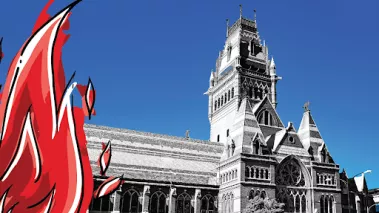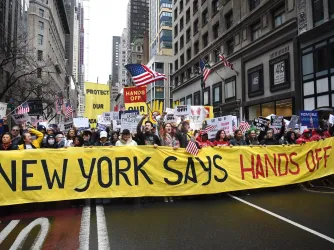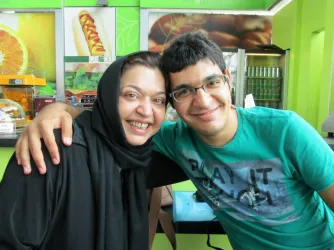Table of Contents
Harvard faculty form Council on Academic Freedom, pledge to defend free inquiry, intellectual diversity, and civil discourse

On Wednesday, Harvard professors Steven Pinker and Bertha Madras announced in The Boston Globe the formation of a new faculty-led council to defend academic freedom at Harvard. Describing the council, they wrote, “We are diverse in politics, demographics, disciplines, and opinions, but united in our concern that academic freedom needs a defense team.”
FIRE applauds these Harvard faculty members for stepping up to defend the ideals of a free society, particularly when so many colleges and universities across the country are failing to do the same.
“Free speech is uniquely important to the university,” that statement reads, “because we are a community committed to reason and rational discourse. Free interchange of ideas is vital for our primary function of discovering and disseminating ideas through research, teaching, and learning.”
The Council on Academic Freedom at Harvard pledges to uphold three principles — free inquiry, intellectual diversity, and civil discourse — which it derives from the “Free Speech Guidelines” adopted by Harvard faculty in 1990. “Free speech is uniquely important to the university,” that statement reads, “because we are a community committed to reason and rational discourse. Free interchange of ideas is vital for our primary function of discovering and disseminating ideas through research, teaching, and learning.”
Indeed, Harvard is in desperate need of a group to defend open inquiry — an unimpeachable requisite to the pursuit of veritas.
Despite its reputation as the pinnacle of higher education in the United States, Harvard ranked an abysmal 170th of 203 schools in FIRE’s 2022 College Free Speech Rankings. About 3 in 4 Harvard students (73%) said shouting down a speaker or trying to prevent them from speaking on campus is acceptable to some degree, and roughly 1 in 4 (26%) condoned using violence to stop a disfavorable campus speech. Nearly 3 in 4 students (74%) said they are “somewhat” or “very” uncomfortable expressing an unpopular opinion to fellow students on social media. And three-quarters of students (75%) said they worry “a lot” or “a little” about damaging their reputation because of someone misunderstanding something they say or do.
Next Thursday, FIRE will release the latest edition of “Scholars Under Fire,” a report detailing attacks on scholars’ free speech rights since 2000. One of the key findings is that more Harvard professors — 23 in total — have faced sanction attempts for their constitutionally protected speech since 2000 than at any other institution in the country. Of these sanction attempts, 18 have come from the left and five from the right. Moreover, Harvard has successfully sanctioned more scholars — 12 in total — than any other school.
Ronald Sullivan, former dean of Winthrop House at Harvard, is one such scholar. Sullivan, the first black man to serve as head of any Harvard house, has been a practicing defense attorney for his entire career and successfully represented the family of Michael Brown, a black man killed by police in Ferguson, Missouri, in 2014. The Huffington Post called Sullivan, “The Man Who Dealt the Biggest Blow to Mass Incarceration,” noting that he won the release of more than 6,000 wrongfully incarcerated persons — more than anyone in U.S. history. Currently, Sullivan serves as director of the Harvard Criminal Justice Institute.

FIRE criticizes Harvard for rescinding human rights champion Ken Roth’s fellowship
Ken Roth is the second controversial figure to be disinvited from Harvard’s Kennedy School in recent years. It happened to military whistleblower Chelsea Manning in 2017.
But in 2019, Sullivan joined Harvey Weinstein’s defense team, a decision that sparked outrage on Harvard’s campus. A student petition read, “For those of you who are members of Winthrop House, do you really want to one day accept your Diploma from someone who for whatever reason, professional or personal, believes it is okay to defend such a prominent figure at the centre [sic] of the #MeToo movement?”
The petition continued, “For victims of sexual assault and rape… the developments of Dean Sullivan’s professional work are not only upsetting, but deeply trauma-inducing.” Administrators did not renew Sullivan’s contract as dean.
In an op-ed in the New York Times, Sullivan rebuked Harvard administrators. “Unchecked emotion has replaced thoughtful reasoning on campus,” he wrote. “Feelings are no longer subjected to evidence, analysis or empirical defense. Angry demands, rather than rigorous arguments, now appear to guide university policy.”
More recently, Harvard faced strong — and deserved — backlash after it rejected the appointment of Ken Roth to a fellowship at the Harvard Kennedy School due to his criticism of Israel. Roth served for three decades as head of Human Rights Watch and, for his accomplishments, has been dubbed the “godfather” of human rights. Yet, the dean of the Kennedy School vetoed his appointment, a decision which Roth believes stemmed from fear that his views would upset donors.
After numerous free-speech organizations including FIRE wrote to Harvard, the dean reversed course. Although FIRE appreciates the eventual outcome, the fact that it took weeks of bad press for Harvard to change its mind indicates a concerning lack of commitment to free speech and viewpoint diversity.
The new Council on Academic Freedom hopes to revive that commitment.
In light of Harvard’s status as a leader in higher education, Pinker and Madras hope their efforts will also extend beyond Cambridge. “Harvard is just one university, but it is the nation’s oldest and most famous, and for better or worse, the outside world takes note of what happens here. We hope the effects will spread outside our formerly ivy-covered walls and encourage faculty and students elsewhere to rise up.”
The new council envisions Harvard as a bastion of academic freedom — not the nation’s leader in sanctioning scholars for unpopular speech. FIRE hopes their advocacy will, indeed, make Harvard a model worthy of emulation.
Recent Articles
Get the latest free speech news and analysis from FIRE.

FIRE sues Bondi, Noem for censoring Facebook group and app reporting ICE activity

Deep dive into New York’s proposals to ban demonstrations near houses of worship

Iran replaced my mother’s voice with silence


